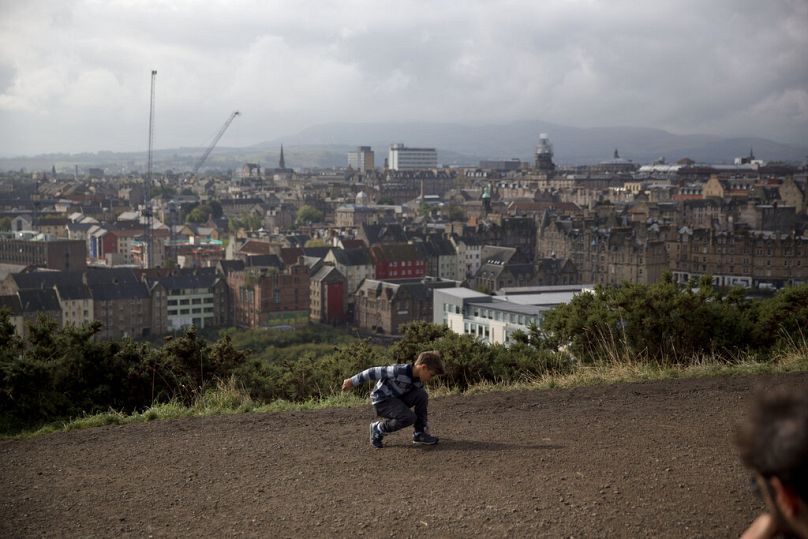Scotland is taking steps to curb short-term holiday lets as many locals are priced out of a low-supply housing market.
The city of Edinburgh has officially declared a housing emergency as it ramps up efforts to help thousands of people stuck in temporary accommodation while protecting overstretched tenants struggling to afford rising rents.
Edinburgh councillors this week passed a motion that points to multiple issues facing the city's residents, from rising rents to a shortfall subsidised and public housing.
According to Councillor Jane Meagher, who tabled the motion, the crisis has defied authorities' efforts to help residents most at risk of losing their homes as the UK battles a cost of living crisis unprecedented in recent decades.
"Despite us doubling the Council’s homelessness budget over the last three years, we are now at risk of failing households who need our help most," she said in a statement.
"Edinburgh may be a wealthy city on the surface, but we are seeing demand for homes far outstrip supply. Close to 5,000 households including many children will need to live in temporary accommodation this Christmas, because of this housing shortage.
"Rents are being driven up, the cost of living continues to put pressure on household bills and homelessness is rising. We have ambitious housebuilding plans, but we face rising construction costs as a result of inflation and difficulties securing land. This is against a backdrop of Edinburgh having the lowest proportion of homes for social rent in all of Scotland."
Edinburgh, which has a population of around 526,000 people, has seen many neighbourhoods rapidly gentrifying in recent decades. Even as it remains highly expensive by Scottish standards, it attracts many renters from more expensive cities in the UK who are willing and able to pay higher rents and higher property prices than many locals can afford.
The city's global reputation as a must-see destination for tourists has only added to the pressure. The ease of letting out homes to short-term visitors – notably via platforms such as AirBnB – has taken many housing units of all sizes out of the residential market.
The short-term let problem becomes particularly acute every August, when the city plays host to one of the world's biggest performance festivals; this year, some performers told stories of being charged more than £6,000 (about €6,900) to rent accommodation that would cost a fraction of the price at any other time of year.
The Scottish government is implementing an aggressive countrywide policy to combat the issue, requiring all operators of self-catering accommodation – including AirBnB hosts – to apply for planning permission before they can host short-term guests.
The policy has proved hugely controversial with Scotland's tourism industry, which has historically relied heavily on seasonal holiday lets, but many Edinburgh residents are keen to see AirBnB in particular curbed because of its effects on the rental market and their quality of life.
The short-term let boom exacerbates the most serious aspects of the housing insecurity crisis, which reflects years of public sector failure to build, secure and upgrade social housing that could be offered to households in need.
Even the temporary accommodation currently available for the unhoused often falls short of legal suitability standards. According to Scottish newspaper The Herald, Edinburgh council is currently breaching the law around the use of suitable accommodation nearly 400 times every three months, with authorities resorting to hotels, bed and breakfasts and hostels unfit for long-term stays.
It is problems like these that the official declaration of emergency is meant to confront head-on. Homelessness charity Shelter Scotland welcomed the council's move, which it said presented an opportunity to galvanise efforts already underway to turn the tide.
"By acknowledging the reality of the housing emergency in Edinburgh, councillors now have licence to deliver the emergency response we need," the charity wrote in a statement.
"People in Edinburgh are struggling through this housing emergency, and they expect action to be taken at every level of government. With councillors having committed to delivering a housing emergency action plan, Shelter Scotland stands ready to work with the council in its development."












